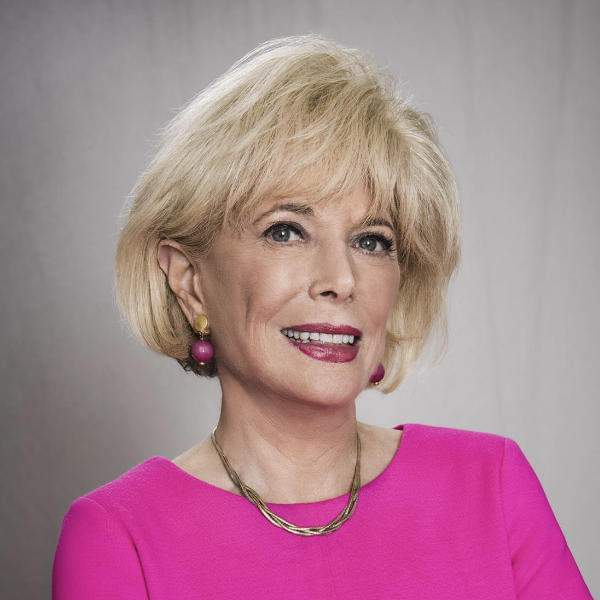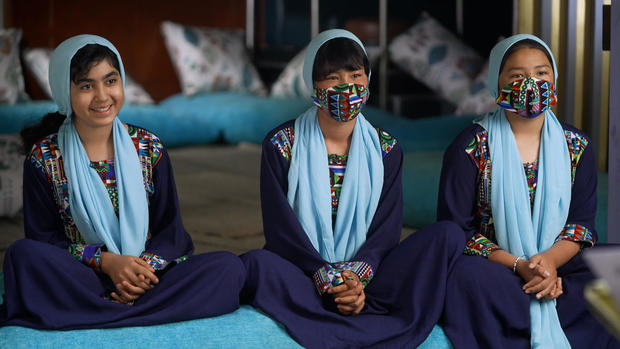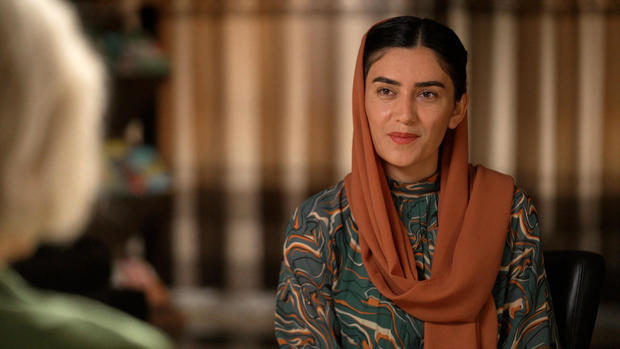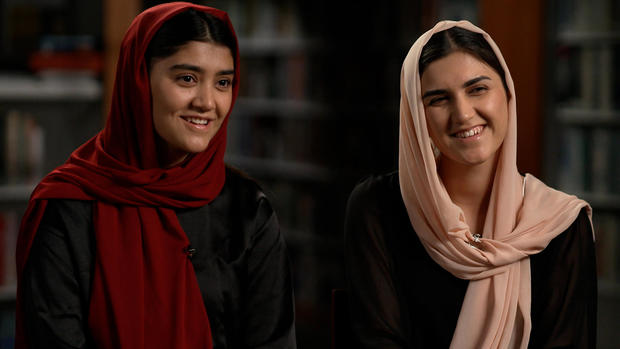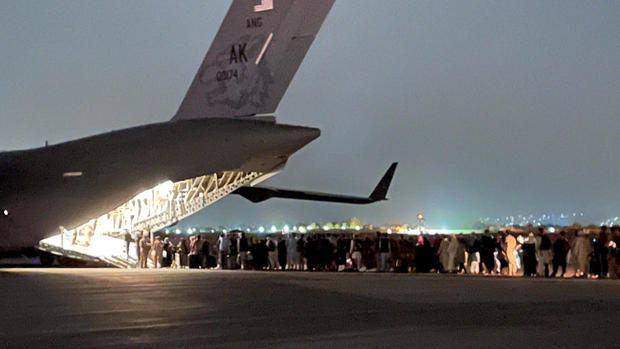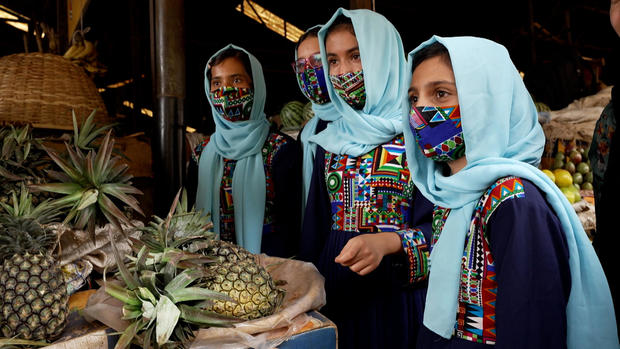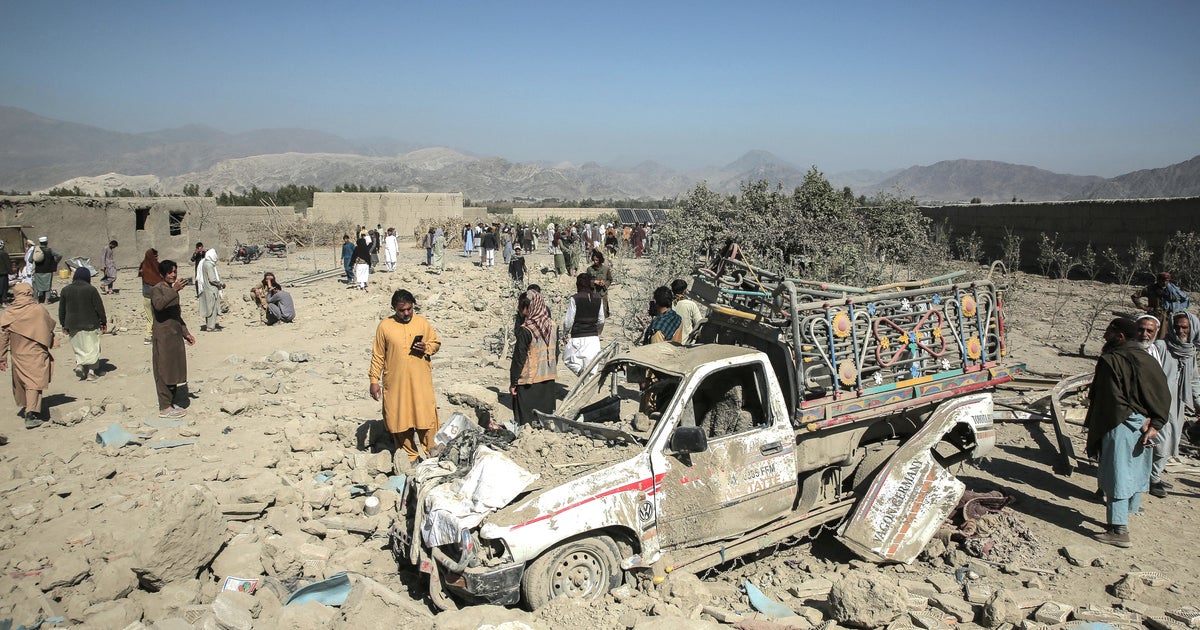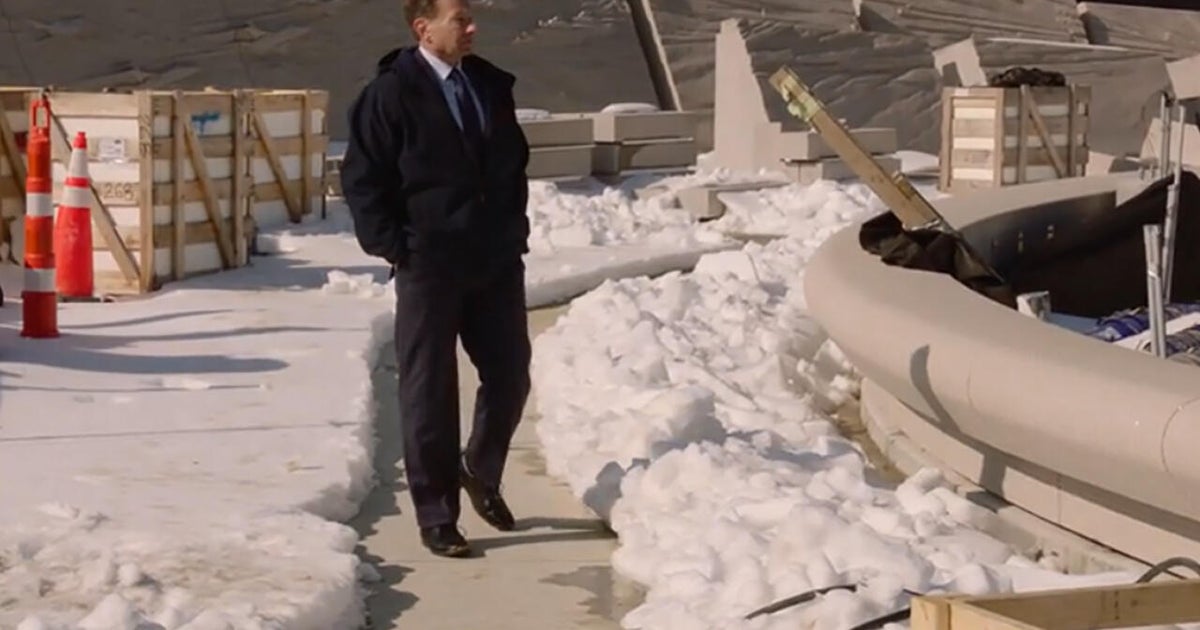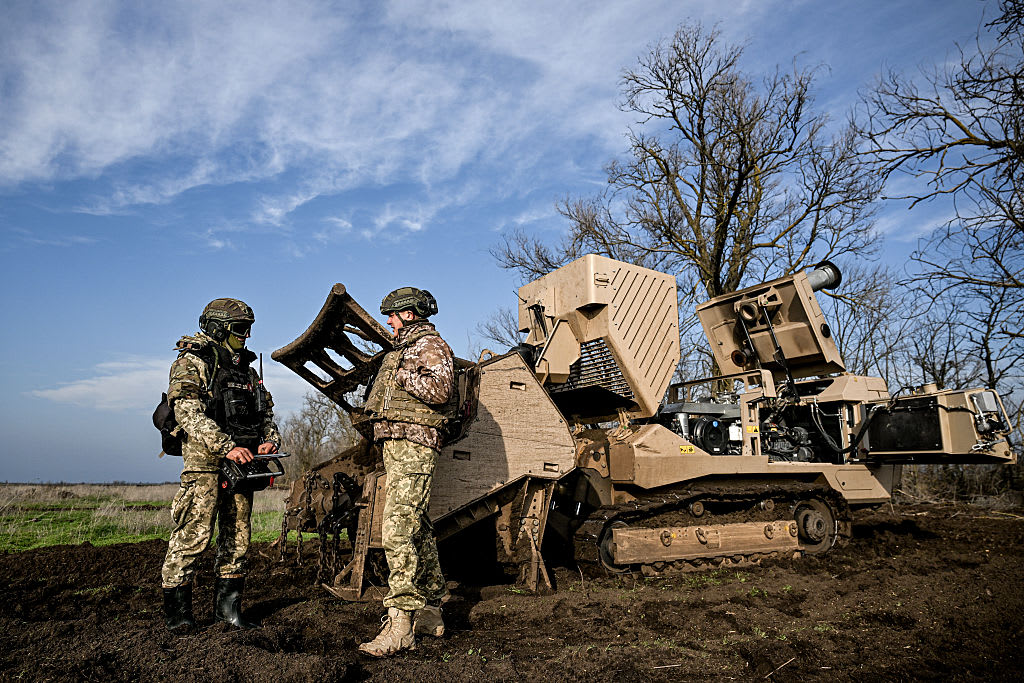SOLA: Daring to educate Afghanistan's girls
Whatever your view of the U.S. decision to end America's longest war and withdraw troops from Afghanistan, that country's fall to the Taliban in August of 2021 has unquestionably plunged that nation once again into a deep crisis. Millions are facing famine, and the economy is in shambles. Those suffering the most are Afghan women and girls. The Taliban has closed girls' schools beyond 6th grade and, just recently, barred women from universities. That means that girls are banned from anything beyond a grade-school education.
Tonight, though, we're going to tell you a story of hope. About a group of Afghan girls who are in school. They're at a school called SOLA, the Afghan word for peace and also short for School of Leadership Afghanistan. It was started by a young Afghan woman named Shabana Basij-Rasikh, who knows firsthand the power of an education. And though they had to flee Afghanistan in a harrowing escape, we found the girls of SOLA back in the classroom, half a world away.
These are the busy streets of Kigali, Rwanda -- a land-locked African nation that was once the site of a horrific genocide that killed nearly a million and left 2 million refugees. Rwanda is now at peace, and has become an unlikely place of refuge for the last year and a half to the girls of SOLA. And they seem to be settling in.
The evening we arrived at SOLA's temporary campus here. The 6th and 7th grades were holding a geography competition. Classes here are taught in English. The girls were racing to identify nearly 200 countries all around the globe. They're wearing masks not to protect against COVID, but to hide their identities to protect their families still in Afghanistan. Zahra's family has left the country, so she can show her face. Suraya's and Najia's are still there.
Lesley Stahl: You knew every country in the world.
Girls: Yes.
Lesley Stahl: You like contests?
Girls: Yes. [LAUGH]
Shabana Basij-Rasikh: They're so passionate. They're so active. They're so eager. They're so interested.
Shabana Basij-Rasikh is SOLA's founder and single-minded leader.
At 32, and just over 5 feet tall, Shabana started creating SOLA when she was still a student herself. Her story -- and her commitment to educating girls -- goes back to 1996, when Afghanistan fell to the Taliban the first time. She was 6 years old and all girls' schools were closed. But Shabana's parents, a former general and an educator, refused to keep their daughters locked up at home. They heard about a secret school run out of a former principal's living room and saw an opportunity, despite the danger, for Shabana and her older sister to be educated.
Shabana Basij-Rasikh: The Taliban did not allow women to go outside alone. So my parents dressed me up as a boy so that I could accompany my sister to and from that secret school.
Lesley Stahl: Whoa--
Shabana Basij-Rasikh: That was the best way that both of us could receive an education.
Lesley Stahl: Oh my God, so they dressed you as a boy--
Shabana Basij-Rasikh: My mom cut-- cut my hair. I wore boys' clothes.
Lesley Stahl: Pants.
Shabana Basij-Rasikh: Pants and t-shirt, and yeah, buzz cut.
And the family carefully mapped out their routes.
Shabana Basij-Rasikh: You know, you take different streets every day so you don't create a routine. The same shopkeeper at a certain-- convenience store should not notice you every day.
Lesley Stahl: So you were always afraid, or they were always afraid, you'd get caught.
Shabana Basij-Rasikh: They never knew when or if we would return home.
But even after a close call where Shabana and her sister were followed and begged their parents to stop sending them to school, her mom and dad said no.
Shabana Basij-Rasikh: They told us things like, "You could be forced to leave your home. You could be forced to become a refugee. You could lose any material possessions that you have. But the one thing that can never be taken away from you is your education."
When the Taliban fell after the U.S. invasion in 2001, Shabana went to a real school for the first time, and she excelled, winning a place in a State Department program to spend a year of high school in the U.S.
Shabana Basij-Rasikh: I was randomly placed with this lovely host family in Wisconsin-- where I gained 40 pounds. [LAUGH]
But that wasn't the only way the year changed her.
Shabana Basij-Rasikh: What struck me the most, was living in a society for the first time in my life where girls had no concerns whatsoever that their freedom to attend school could be taken away from them any time, which is something that every single Afghan girl who's lucky enough to go to school lives with, and you can't blame them, can you?
Lesley Stahl: No, I can't because Afghanistan is the only country in the world that won't let girls go to school.
Shabana Basij-Rasikh: Yeah, so um-- [SIGHS, TEARS UP]
Lesley Stahl: Why are you tearing up? That Afghanistan's the only country?
Shabana Basij-Rasikh: [NODS, TEAR RUNS DOWN HER FACE]
Shabana's commitment to her homeland runs deep. When she got a scholarship to attend Middlebury College in Vermont, she started working not on building a great life for herself in the U.S., but what she could do for Afghanistan. Her answer, start a school -- and by the time she graduated in 2011, an early version of SOLA was already up and running in Kabul.
Fatima: I heard that it's different. It's a leadership program.
Fatima was an early SOLA student.
Lesley Stahl: You were encouraged to speak up?
Fatima: Yes.
Lesley Stahl: You liked that?
Fatima: Yeah, yeah. (LAUGHTER)
Aydin: I was, like, "Wow." I-- I thought, like, it's-- it's such an awesome school..
Fatima's two younger sisters, Aydin and Sajia, took notice. Sajia got in next.
Aydin: And I was, like, "Well, next year it's my turn. [LAUGH]
Aydin remembers trying to impress Shabana, the school's founder, in her interview.
Aydin: I was, like, reading a lot of books, and I was writing their summaries down. And I was, like, "You know what? I should take this and show her like I'm a smart kid, you should accept me here." [LAUGH]
It worked. Aydin started as a 6th grader in 2016, the year SOLA expanded to become a full-fledged 6-12th grade girls boarding school -- the only one in afghanistan, funded as a U.S. nonprofit through grants and donations. There were daily assemblies, and the school's own special pledge of allegiance.
Aydin: "We all are Afghans, we love Afghanistan, we will try our best and work hard to improve this beautiful country."
Shabana's goal was both to educate her students. And serve the nation by training a generation of leaders from Afghanistan's various regions and religious sects.
Aydin: My roommate was Shia, and I was Sunni. And it was my first time to talk to a Shia girl. And it was so interesting to hear from her.
Lesley Stahl: Do you deliberately want the children of conservative families?
Shabana Basij-Rasikh: We certainly create an environment in which even the most conservative families in Afghanistan would feel comfortable sending their daughters.
Lesley Stahl: Do they?
Shabana Basij-Rasikh: They do.
Lesley Stahl: Do you teach the Quran?
Shabana Basij-Rasikh: We do. For these young women to be effective leaders of Afghanistan, they have to be great Muslims, great Afghans, and highly educated.
At the start of 2021, SOLA was thriving. Shabana had secured land in Kabul and construction was underway on a new campus. There were a record number of applications, with students enrolled from all over the country. And SOLA graduates were doing just what Shabana had envisioned. Fatima had finished college and was working at the Afghan Ministry of Finance.
Fatima: I was a professional woman. I was contributing. I also had all my friends who were educated women and men as well.
Lesley Stahl: So there was a little community.
Fatima: Yes.
But the Trump administration had been negotiating with a newly emboldened Taliban, promising a withdrawal of U.S. troops. And then in April of 2021, President Biden announced an unconditional exit.
President Biden address: I've concluded that it's time to end America's longest war. It's time for American troops to come home.
Shabana Basij-Rasikh: I knew then that it was a matter of time before it was going to be irresponsible of me to run an all-girls boarding school in Kabul.
She came up with the idea of taking the whole SOLA community -- students and staff -- abroad for a semester while the American withdrawal played out. So she started searching for a country, ideally one nearby, that would accept them. But the warmest response she got by far was from Rwanda, and she grabbed it.
Lesley Stahl: You were gonna go to a place called Rwanda--
Aydin: Rwanda--
Lesley Stahl: Did you know anything?
Aydin: We all went and searched, and then we found out that it was in Africa, and I was, like, "Wow. [LAUGH] Oh my God, I'm so excited." [SMILE]
Some of SOLA's alums, including Sajia and Fatima, were asked to come as well.
Lesley Stahl: So was the idea at that moment that you were escaping and that you weren't gonna come back for a while?
Sajia: No. The idea was that the security is getting worse. We would leave for-- for a, you know, semester. And then if the security gets better, we would come back. If not, we would stay there for a year or more.
Lesley Stahl: What was the atmosphere in Kabul at that point?
Sajia: The provinces were, you know, falling one after another, but then we were not hoping for Kabul to fall this soon.
The U.S. government wasn't expecting Kabul to fall soon either. As American soldiers prepared for an anounced end-of-August departure, SOLA brought in passport officials on August 14th to process the girls' paperwork for flights a few days later. They worked into the night, but unbeknownst to all of them, it was too late. The Taliban were closing in and would enter Kabul in just a few hours.
Aydin: It was 5:00 a.m. in the morning when I-- got a knock on my door.
Najia: One of my teachers came and said that, "You guys have to leave SOLA in five minutes." And I said that, "Why?" And she said, "If the Taliban come, they will know that here is a school, and they will kill all of us."
Suraya: All of the girls was shouting, and all-- all of us crying, "What should we do?" Taliban came to the Kabul and took all of Kabul.
In the chaos of the Taliban takeover and government collapse, SOLA quickly sent students home with teachers and staff. Shabana scrambled to transform what was to be an orderly departure into a sudden, life-threatening escape. But first, she had to keep a promise, one she'd made years earlier to a student's father.
Shabana Basij-Rasikh: He said, "Promise me, when the Taliban come to Kabul, that you will burn my daughter's records. If they find out that she's a student here, they will kill me and my family."
So Shabana did something heartbreaking. Set fire, in the school's furnace and courtyard, to the hard-earned records of all of SOLA's students.
Shabana Basij-Rasikh: It was incredibly painful. It felt like making them disappear.
Most of us remember the desperate, frantic crowds trying to get out of Kabul after the Taliban takeover in August, 2021. Among them were the students, teachers, staff and staff families of SOLA -- 256 people in all. SOLA's founder, Shabana Basij-Rasik, managed to get all of them on U.S.-approved lists to leave the country, but getting them into the airport was another matter altogether. There were a series of Taliban checkpoints, so arriving together as a girls' school was out of the question. SOLA divided the students into groups, with many posing as the children of staff members. The call went out for all the groups to head to the airport on the morning of August 17th.
The previous day had been chaos. People had been clinging to airplanes, and crowds had descended on the airport. Sisters Fatima, Sajia, and Aydin prepared to go there together.
Fatima: We had our masks, we made sure our scarfs are put tightly, and we were wearing very long dresses.
Sajia: When we left, my mom was telling us that, "Make sure that you don't do eye contact with-- with Talibs. So we were just really scared. And then I was just, like.. [LOOKS DOWN]
Lesley Stahl: If I look down, they won't look at me.
Sajia: Yes.
Fatima: By the time we got closer to the airport, it was so crowded.
Aydin: The weather is hot, and I have this black scarf and black mask. And it's suffocating.
Suraya: People was pushing each other and shouting. And all of the babies crying--
Zahra: I saw Taliban that they were-- they were shooting the guns. And also the--
Lesley Stahl: They were shooting guns?
Zahra: Like, the bullets--
Suraya: --into the sky.
Najia: Someone took my scarf. It was in my head, and then someone… [GESTURES] And the Talib saw me, and I shouted, and I said that, "They will kill me now."
As a teacher quickly handed Najia a scarf, Fatima and her sisters were being jostled by the crowd.
Fatima: Everybody was pushing and in a moment, I noticed that my sisters aren't there.
Sajia: At one point, she was gone.
Lesley Stahl: So now it's just the two of you?
Sajia: I remember sitting there and then crying. And I was, like, "Aydin, I don't want to go. Can we just stop here? You know, let's just go back."
Lesley Stahl: Honestly, I understand. I-- I probably would have done just what you did.
Sajia: It was a tragedy, you know, with women having, like, their very young kids. I was, like, "I just can't take this anymore."
Aydin: I really didn't know what to do 'cause she was not listening to me, and then one of SOLA teachers, came and told her that, "You gotta stand up, go or stay here forever." And then-- I took her hand, and then we went.
The three sisters were among more than a hundred SOLA students and staff -- including Shabana -- who made it into the U.S. military-controlled airport to safety that day and were processed to leave on waiting jets. Shabana was told her name was on a taliban hit list, so she should get out right away with them. But all the other students and teachers were still stuck in the crowds outside. Shabana refused to go.
Shabana Basij-Rasikh: I knew if I-- if I left, it was game over. Those who were stuck at different checkpoints had no way of getting through.
Zahra: People were pushing us..
One of them was Zahra.
Zahra: Taliban was saying, "Sit," and there was no place to sit.
Zahra's group and others had to turn back, while Shabana spent a first sleepless night inside the airport. After two more days of waiting in these throngs, one last group of 52 was still stuck. Shabana asked a U.S. Marine captain to accompany her out of the safety of the airport and back to the Taliban checkpoint. Captain Nicholas Grey grabbed two members of his team and said, "let's do this."
Lesley Stahl: You were in the airport and went out--
Shabana Basij-Rasikh: --and then went back. This is what you do. You have 10-year-old girls, 11-year-old girls, 15-year-old girls stuck on the other side. You do anything you can, to get them to safety.
Suraya: And she shouted, "Suraya, Suraya, come this way." And I pushed, I pushed, I pushed, and I get her hand, and--
Lesley Stahl: And she pulled you?
Suraya: Yeah.
Lesley Stahl: Oh my goodness.
These pictures were taken as the very last group of students and Shabana, after three days and two nights in that airport, boarded the military transport plane that would at last fly them away. She had managed to get everyone out -- 256 people.
Lesley Stahl: You have to say to yourself, "I did it. It's over. I got everybody out."
Shabana Basij-Rasikh: It was finally having a moment to think about-- Oh, my God, this is it.
Lesley Stahl: Oh.. oh my God this is it. So now you're looking to the future
Shabana Basij-Rasikh: [TEARY] We're leaving, you know? And-- I was taking with me from Afghanistan some of the best educated girls, women leaders in the making. I felt so heartbroken for our people, for Afghanistan. I felt heartbroken for the very people who are leaving. They are some of the most wanted talent in Afghanistan. And as soon as they step outside of this airport, they are going to be seen as unwanted refugees wherever they end up.
Lesley Stahl: Hello.
Girls: Good morning.
But her students are having a completely different experience. In Rwanda, they have been welcomed.
Lesley Stahl: Good morning! How are you today?
We found them dressed in new school uniforms, since each of them had fled with just a backpack.
Lesley Stahl: I love what you're wearing.
Girls: Thank you.
They're hand sewn with rwandan patterns to honor their adopted home.
Lesley Stahl: You like it here?
Girls: Yes!
You wouldn't know they've been away from their families for more than a year. SOLA's temporary campus here feels like a haven. It's a former hotel complex. Its restaurant now a dining hall, with classrooms converted from hotel suites.
Girls: Division!
They're getting on with the business of learning, mastering math terms.
Girls: Numerator
In English.
Girls: Denominator.
With many of their Afghan teachers now resettled as refugees in other countries, SOLA has brought in new teachers from abroad.
Teacher: That was great. Good job.
Lesley Stahl: This is a school for leadership.
Girls: Yeah.
Lesley Stahl: You think that you'll become leaders?
Girls: Yeah.
Girl: Yes, of course.
Girl: I want to be a surgeon.
Girl: I want to help poor people in Afghanistan.
Girl: I want to be a politician woman.
Lesley Stahl: A politician?
Girl: Yeah.
Suraya wants to be an astronaut.
Suraya: Spacewoman.
And finally, from Zahra..
Zahra: I want to be a spy.
Lesley Stahl: A spy?
Zahra: Yeah.
Lesley Stahl: [LAUGH] That came out of nowhere.
Lesley Stahl: How are the girls doing?
Shabana Basij-Rasikh: Our students, our girls have been consistently and remarkably focused. It is beyond inspiring to see these young girls who know they have no idea when they are going to be able to reunite with their families.
But though they're more than 3,000 miles away, it is the 21st century. One of the most striking scenes we saw here was the daily hour, after classes end, when girls can call their families. Watching them scattered around the room is to feel the tremendous separation. But Shabana also sees the closeness.
Shabana Basij-Rasikh: Yesterday I was watching swimming practice, [and] one of them said, "I've been wanting to learn how to float for such a long time and I can finally do it today." And I asked her, I said, "Do you share these kinds of moments with your family?" She said, "I share every single thing with my family. And they are so happy for me. They tell me that they are happy because I'm happy."
Lesley Stahl: What's the reception been like in Rwanda?
Shabana Basij-Rasikh: Remarkable doesn't quite capture it. I've had this conversation with so many Rwandans saying, "Please don't forget, we were also once refugees. Here we are back in Rwanda. You will go back home, but for the time being, welcome home to Rwanda."
Lesley Stahl: Wow.
Watching these girls learn, we were struck by the realization that they are among the only Afghan middle and high school girls -- out of a country of 40 million -- who are getting a formal education. But knowing how fortunate they are, has made hearing the news from Afghanistan that much more painful. Fatima's female co-workers at the ministry of finance have all been replaced.
Fatima: My female colleagues received phone calls saying that they should send one of their male family members to work instead of them.
Lesley Stahl: So wait a minute. They were being told to send male relatives to take their job-- their jobs?
Fatima: As long as they can do the job, they should send them.
Last March, the Taliban announced that girls' schools would reopen. Girls flocked in, only to be told hours later to go home and stay there.
Sajia: All over social media were videos of these young girls crying. And then I was so mad on everybody for-- for not doing anything.
Lesley Stahl: You mean the rest of the world?
Sajia: This bunch of men has taken the control of an entire country, and they are doing whatever they want.
Women have been ordered to cover themselves head to toe again. They're banned from public parks and, just months ago, banned from universities as well. History repeating itself. And if there's one member of the SOLA community who understands what Afghan girls today are facing, it's Maryam, the school's longtime cleaning woman, and now seamstress. She knows the power of an education.. Because she never got one.
Maryam (Translated): The Taliban were in power at that time. I mean the first time the Taliban were in power. I was not allowed to go to school. Girls could not study.
Lesley Stahl: Maryam, can you read or write?
Maryam (Translated): I would really like to, but I can't. If I could've gone to school, I would have been very happy. It was very hard for me.
But there is something that makes her happy these days, watching her 9th grade daughter Zarmina, who is now a student at SOLA. Talking about Zarmina's future, we finally saw Maryam's smile.
Lesley Stahl: Are you proud of your daughter?
Maryam: Yes, yes. Yes. [SMILING]
Shabana Basij-Rasikh: We cannot under any circumstances submit to Taliban's vision for Afghanistan. And what does that mean for us? It means continue to educate more Afghan girls.
But how? Well, she's recruiting them. Over Zoom, from Afghan refugee communities and camps in countries around the world, to bring them here to Rwanda.
Lesley Stahl: What should the U.S. government be doing, in your view?
Shabana Basij-Rasikh: The one thing that the U.S. policy makers cannot-- cannot afford to do is to forget about Afghanistan. Do not look away. Do not look away from Afghanistan. I cannot emphasize that enough.
And what she wants them to see, alongside the ongoing tragedy in that country, is SOLA's vision. Educated girls committed to one day being leaders of a different Afghanistan.
"We all are Afghans," they say. "We love Afghanistan. We will try our best and work hard to improve our beautiful country."
Lesley Stahl: You say this every day?
Girls: Yeah.
Zahra: We repeat it every day that it-- it's stuck in our heart.
Lesley Stahl: Do you all think you'll go back?
Girls: Yeah. Of course. Of course we will go. [LAUGH]
Lesley Stahl: Is it possible that you won't go back to Afghanistan? Is it possible?
Shabana Basij-Rasikh: I spend every waking hour preparing for a return.
Lesley Stahl: It will happen--
Shabana Basij-Rasikh: I've borrowed a stone from the airport. I need to return.
Produced by Shari Finkelstein. Associate producer, Collette Richards. Broadcast associate, Wren Woodson. Edited by April Wilson.
